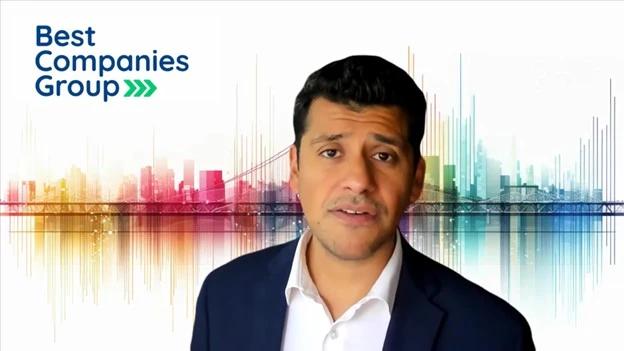 RISE, CL address industry issues at annual meeting
RISE, CL address industry issues at annual meeting
RISE and CropLife America have never been afraid to take on the big issues, whether it’s working with government officials to find solutions to complex regulatory issues relating to protecting public health and the environment or grappling with how to feed an exploding global population that is expected to top 9 billion people by 2050.
That’s why a well-attended general session titled “The Seven Revolutions” featuring Johanna Nesseth Tuttle of the Center for Strategic & International Studies proved so timely, as 500 industry executives traveled to Amelia Island, Fla., just a month before the U.S. Presidential election to chart the future of the chemical industry.
“What’s the world going to look like in the year 2030?” Tuttle asked those attending the bi-annual meeting of RISE (Responsible Industry for a Sound Environment) and CropLife America. How policy makers respond to seven key issues with global implications in the years ahead — population, resources, technology, economics, information, security and governance — will likely provide the answer to that question.
There will be opportunities for government and industry “to find new paths forward” and address the challenges of population growth, security, and other issues of importance to people around the globe, and chemical suppliers are going to play an important role in shaping that new world, although “the role that your industry plays is going to continue to be challenging” given the complex nature of the issues facing policy makers.
Still, there is reason for optimism if industry representatives stay actively engaged on issues of importance to them. “Our theme for this week — political campaigns of the past — also reminds us how important our individual and collective participation in the political process is — and how powerful it can be,” observed Dave Morris, outgoing RISE Governing Board Chairman and Commercial Leader, Pest Management and Turf and Ornamentals Business, Dow AgroSciences.
 In other RISE/CLA highlights, keynote speaker Charlie Cook, editor and publisher of The Cook Political Report, shared his thoughts on the presidential race and the state of American politics. Regardless of the outcome of the election, he said, there is much work to be done in Washington, particularly as it relates to the economy.
In other RISE/CLA highlights, keynote speaker Charlie Cook, editor and publisher of The Cook Political Report, shared his thoughts on the presidential race and the state of American politics. Regardless of the outcome of the election, he said, there is much work to be done in Washington, particularly as it relates to the economy.
“After this election…I’m very worried about what’s going to happen at the end of this year and the beginning of next year,” he said. “When they (Congress) get back, if they don’t get a deficit package in place…you’re going to see some bad things happen. Can these folks get their act together?” Cook asked. “We’re now getting sort of close to judgment day.”
In closing the conference, RISE President Aaron Hobbs said the association’s longtime partnership with CropLife America “is a great thing for our industry,” allowing the two advocacy organizations to speak with one voice. “We have a lot of opportunity out there to change policy and change minds,” he said, but it requires active involvement by RISE members, a theme echoed by MGK President Steve Gullickson, incoming RISE Governing Board Chairman.
Veterans go the distance
So a couple guys clocked seven full rounds in a single day in Minnesota. Big deal. On Veterans Day this year, military veteran students at the Golf Academy of America played from dawn to dusk at River Oaks Golf Plantation in Myrtle Beach, and raised money for the Wounded Warrior Project and Salute Military Golf Association.
About a dozen total veterans played throughout the day, switching in for each other to keep a foursome going no matter what came up. Golfers received sponsorships or pledges to play, and each of the branches of the Golf Academy co-sponsored the marathon. Such strong support is no surprise for an institution where a full 15 percent of the student population is made up of veterans, according to Jim Hart, Myrtle Beach campus director.
The event was one of three Wounded Warrior Project fundraisers at River Oaks, which included a green target drive on a par 3 or a practice green putt, both for a donation. The marathon, however, comes on the heels of last year’s effort: Air Force veteran and Golf Academy student Mark Chapman golfed 11 rounds in 11 hours to raise money.
Mean Green dancing machine
 Perfectly managing a height of cut while tracing graceful lines across a fairway takes skill, talent and focus, but turf management branched into an entirely new art form at the end of October - a Mean Green CXR-60 shimmied its way to the dancefloor in the most recent season of Dancing With the Stars.
Perfectly managing a height of cut while tracing graceful lines across a fairway takes skill, talent and focus, but turf management branched into an entirely new art form at the end of October - a Mean Green CXR-60 shimmied its way to the dancefloor in the most recent season of Dancing With the Stars.
Mean Green owner Joe Conrad got the call from CBS studios just three days before the taping of the episode, meaning the Ohio-based team hauled a 36-hour journey to Los Angeles to make it. After arriving in the City of Angels, Conrad helped Derek Hough and Shawn Johnson prep with their new dance partner. Unfortunately, the mower didn’t really get to cut up the dance floor, although the dancers rode out on it to Kenny Chesney’s “She Thinks My Tractor’s Sexy,” scoring a 28 total for their country cha cha.
Maybe next season the machine will actually make it onto the dancefloor? We hear it does a mean mow-rengue.
From the Feed
With a summer of drought behind us, water use and irrigation is an even higher priority for golf courses throughout the U.S. Pat Jones attended the “Golf’s Use of Water” summit put on by the USGA in November, and tweeted some of the key points made by the speakers and experts. We invited superintendents to join in the conversation on Twitter.
Ron Whitten @RonWhittenGD
At this point, I like to think that defining the problem is appropriate. Assume remainder of program will offer solutions…
GCI Magazine @GCImagazine
Weak turf means weeds and pests, more inputs, etc. Greener usually equals healthier and healthier is better.
Sean R. @spartangrass
Golf isn’t played from an agronomics standpoint. It’s measured from playability.
based on that definition, must determine which costs more: Green lush turf: water and fungicides, Brown turn: herb & pesticides.
Sean Wilson @mseanw67
Most courses will never be able to afford all this technology being talked about as the answer.
Robert Waller @robertwaller70
There will be a financial tipping point that creates an ROI. 1st in high water and energy cost locations.
Robert Waller @robertwaller70
Biggest takeaway. “Technology doesn’t save water, people’s decisions save water.” More training needed.
Join the conversation on Twitter @GCIMagazine!

Explore the December 2012 Issue
Check out more from this issue and find your next story to read.
Latest from Golf Course Industry
- Heritage Golf Group acquires North Carolina courses
- Editor’s notebook: Green Start Academy 2024
- USGA focuses on inclusion, sustainability in 2024
- Greens with Envy 65: Carolina on our mind
- Five Iron Golf expands into Minnesota
- Global sports group 54 invests in Turfgrass
- Hawaii's Mauna Kea Golf Course announces reopening
- Georgia GCSA honors superintendent of the year





